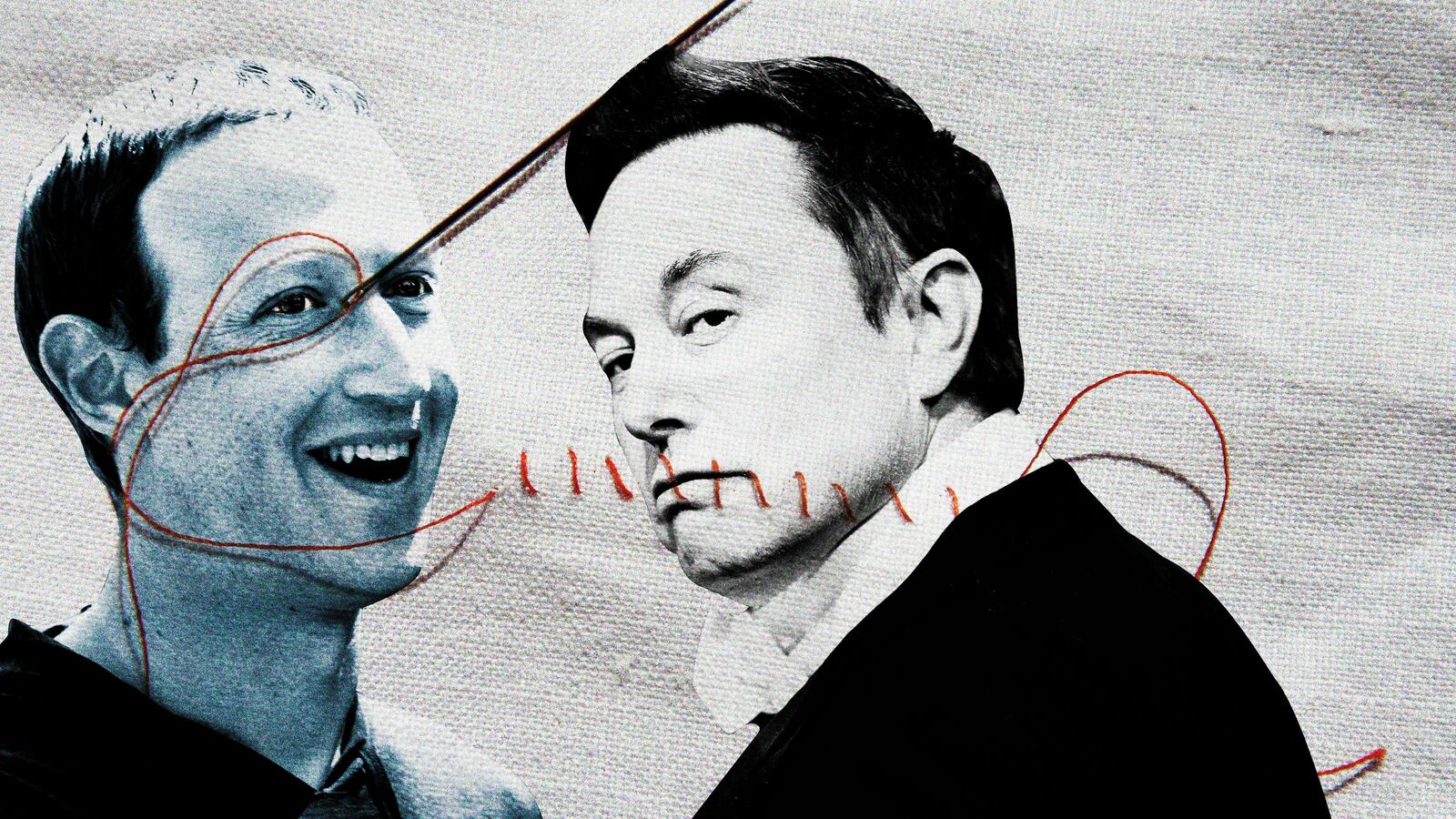I’ve tried them all, and Meta’s new “Threads” poses the greatest opportunity to (finally) transcend Twitter. Perhaps that’s why the social media app is already being dubbed the “Twitter killer.”
Like Donald Trump, reports of Twitter’s demise always seem to be greatly exaggerated—or at least, premature. But there are a couple of reasons why this latest challenge cannot be cavalierly dismissed: a) Twitter has frustrated and alienated users, and b) Threads is the first competitor that is intuitive and user friendly—and has the resources of some guy named Mark Zuckerberg.
So how did we get to the point where Twitter is this susceptible? In the beginning, Twitter was fun (and filled with light-hearted jokes), partly because it was sparsely populated with early adopters, tech utopians, and free-spirited young people.
Within a few years, though, that started to change. Twitter brought out the worst in almost everyone (hence, my provocative Jan. 2013 essay, “Why I Hate Twitter”).
Then, Elon Musk bought it, and made it even worse.
Musk’s “innovations” made the platform less trustworthy, more gross, and harder to access. He threw out the only thing most normal people want most from a micro-blogging platform: The ability to curate our own feeds.
Even worse, Musk ruined the most important journalistic deliverable the platform had left: A place to turn for verified sources during moments of breaking news.
It is hard to calculate the value of owning the town square where every journalist in the world is gathered and verified to prove their identity and credentials. Instead of cherishing this attribute, Musk pissed it away, removing verification from credentialed journalists (authors, academics, activists, etc.), and selling verification badges based solely on someone’s willingness and ability to give him $8 a month.
We have since seen repeated instances of “verified” accounts disseminating fake news.
Most recently, it seems to have been established that Erica Marsh—ostensibly a former Biden and Obama operative, whose over-the-top left-wing tweets were primarily promoted by conservatives on Twitter—does not, in fact, exist. (Though her account did have the blue checkmark “verified” badge.)
Aside from squandering a key attribute of the site (being able to trust that prominent people were who they said they were), Musk also made it easier for formerly verified users to jump ship.
Until recently, though, none of the alternate vessels were seaworthy.
Mastadon was inscrutable. Post News? I can’t remember. Substack Notes has potential but seems to be limited to people who are really into Substack newsletters. (I’m currently on a waitlist for Bluesky, which doesn’t make me feel very special.)
Even at its peak, Twitter was used by a minority of Americans. But every politician, journalist, and activist had to use it, which is to say it dominated the discourse. This monopoly is now in jeopardy.
The fact that there is now a glut of Twitter knockoffs suggests there is a market for a new platform. And Threads is better positioned than any potential rival to capitalize on the advantages that Twitter has squandered.
The key is to reduce friction. People are now ready to leave Twitter, but only if it does not require them to start from scratch in terms of a) the pecking order, and/or b) having to completely rethink or relearn functionality.
Threads checks both boxes.
Instead of having to start from scratch, you can import your Instagram followers (this is one of the benefits of a platform owned by Meta). What is more, if you’re already verified on Instagram, then you’re already verified on Threads.
And for everyone else, Threads feels intuitive and familiar. The feed is clean and simple, and the interface grants the user the ability to “like” a post, comment on a post, or repost a post. This is to say, Threads looks and feels almost exactly like Twitter.
It turns out that Jack Dorsey and his engineers back in 2006 or 2007 cracked the code regarding what people want in a mini-blogging platform.
Perhaps Musk, who recently challenged Zuckerberg to a fight in a cage match, will sue over this, but I’m not sure he will have much of a case.
These innovations belong to the ages. New sites borrow and build from past innovations. When Facebook came along, it looked a lot like the early 2000s social media site Friendster. Likewise, Instagram and Facebook already grant users the ability to “like,” “comment,” or “share” a post. At this point, saying you “own” these functions would be like saying you invented the question mark.
Threads also has a real chance to create a world where journalists and other opinion leaders no longer feel compelled to live on Twitter.
That’s not to say that Threads couldn’t mess this up. It could. For this to work, Threads will have to do a few things right.
First, they will have to work hard on verification. I am currently verified (@mattklewis), but the process has to be streamlined to the point where more legitimate professionals can quickly be verified.
Second, they will have to (no pun intended) thread the needle regarding content moderation. Everyone wants to avoid turning Threads into another hellscape, but as soon as, say, a far-right troll like Laura Loomer ends up there and develops a big following for spewing toxic trash, the new app is in trouble.
Like a free country, social media platforms must aspire to “ordered liberty.” If there is not enough order, the site becomes a hellscape where the outlaws rule. But if there’s not enough liberty, it's 1984. This is a delicate balance that has eluded almost everybody.
Third, don’t be evil. Or stupid. According to one Twitter user, deactivating her Threads account resulted in deleting her Instagram account. Whether this is a horrible glitch or something more sinister, it’s the kind of thing that could damage the platform as it is taking off.
There is a growing sense that as Twitter’s CEO, Musk is heavy-handed, untrustworthy, and has put profit ahead of Twitter’s functionality. Threads should aspire to copy the good things about Twitter, while simultaneously being the opposite of Elon Musk’s Twitter.
Otherwise, we’re just jumping out of the frying pan into the fire.








